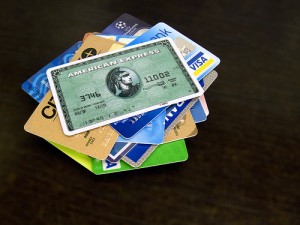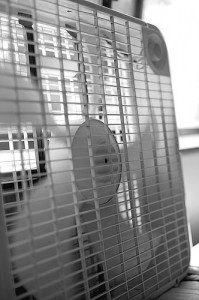A year ago, our situation was drastically different than it is today. Our savings was depleted after months of bringing in less than we needed to make ends meet. We had a little money in the bank, but not enough to sustain us for very long.
We were living frugally out of necessity. Though our spending was cut to the absolute minimum, I estimated that our savings would last only a few more months. I could count the number of restaurant meals we’d had in a year on one hand, and we never spent money on anything but necessities. We were in frugal survivor mode.
A month later we were married, enjoyed a frugal honeymoon in Washington D.C. that we’d saved all year to take, and came home with a little nest egg from generous friends and family who had attended our wedding. I wanted to save the money, but I feared that our situation would force us to spend it to continue paying our bills in a few months when the rest of our savings ran out.
Thankfully, I was hired at my job a week later. The additional income helped us start saving again, pay down our remaining credit card debt quickly, and turn our financial situation around.
Eleven months later we have no credit card debt, 60 percent of our emergency fund in the bank, and we’re on our way to paying cash for a vacation in Europe all on the equivalent of one full-time salary. We’re considerably more comfortable and nowhere near as stressed about money. And yet, we’re still in danger.
The more comfortable we become, the easier it gets to edge toward the lifestyle we’ve fought so hard to resist. When I look at our bank balances, I feel calm instead of stressed. But that makes me more likely to forgo cooking dinner for a meal out. We can afford it now, right? When I see a good deal on clothing or books, I’m tempted to drop the cash. I deserve a little treat for my hard work, don’t I?
Comfort breeds complacency, and while I’m okay with being a little more lax about our spending than we used to be, I don’t ever want to be complacent. I always want to be mindful of our spending to ensure that every penny we spend is for good reason. I’d rather go out to dinner to spend a date night with my husband than head to a restaurant because I’m too tired to cook. I’d rather save our money for one memorable experience than fritter it away on a thousand little things I won’t remember a week later.
Now that we have more income and more savings, our finances are less stressful, but our impulses are harder to control. When I see a big screen television on sale or browse a bookstore, I’m no longer resisting because I can’t afford it. After all, the money is right there. I could easily withdraw it from our savings account and buy any number of things. The more comfortable we become, the harder we have to work to fight it.
Lately I’ve felt complacency creeping in, replacing the desperation to keep our heads above water that we felt last year. I’m aware of just how much money we’ve saved and so tempted to spend it. The struggle to pay our bills has been replaced with the struggle against our culture and our spendthrift natures.
Every day I remind myself that our goals are more important than frivolity. It’s a constant battle, but it’s one that I’m willing to fight. The reward of accomplishing our financial goals is much greater than the brief satisfaction we’d get from instant gratification.


